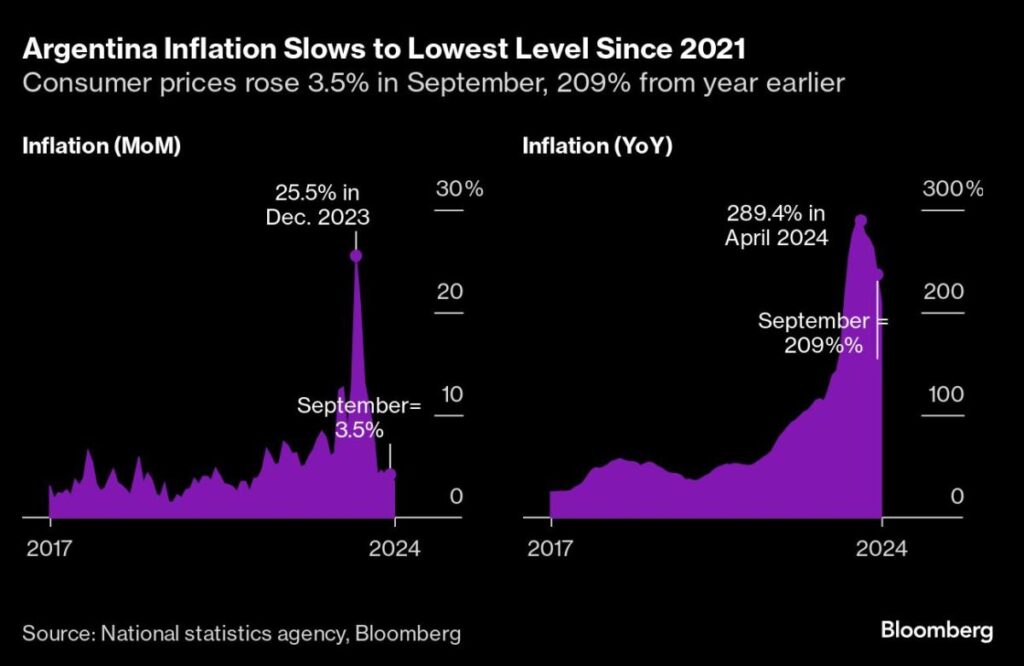Argentina’s inflation rate has shown signs of significant improvement, with the country experiencing its lowest monthly inflation since late 2021. This decline comes as a boost for President Javier Milei, whose administration is heavily focused on combating the persistent rise in prices that has plagued the nation. According to government data released on Thursday, consumer prices rose by 3.5% in September compared to August, a slight decrease from the median forecast of 3.6% by economists surveyed by Bloomberg. This improvement has led to a reduction of annual inflation to 209%, down from rates hovering around 4% per month since May.
In an aggressive move to tackle inflation, President Milei implemented a significant reduction in the country’s main import tax, slashing it from 17.5% to 7.5%. This change is part of Milei’s broader strategy to stabilize the economy and mitigate price pressures. Additionally, the disparity between the official exchange rate and the parallel rate—often referred to as the “blue” dollar—has narrowed, further influencing price stability. Milei has pledged to eliminate the import tax entirely by the end of the year, framing these decisions within a commitment to maintain certain capital controls and manage the peso, which has been depreciating at a rate of 2% per month.
Amid these economic adjustments, Milei has also moved forward with cuts to government subsidies that have historically contributed to lower prices for basic services. These cuts have resulted in sharp increases in certain fares; for instance, train fares surged nearly 40%, with the minimum ticket price increasing from 200 to 280 pesos. Moreover, utility prices—including water, gas, and electricity—have seen marginal increases of around 4%, reflecting a broader effort by the Milei administration to reduce fiscal imbalances and long-standing government assistance programs.
As Argentina continues on this path of economic adjustment, many economists are optimistic that the measures being taken by Milei will bear fruit in the coming months. A monthly survey conducted by the nation’s central bank suggests that annual inflation may drop sharply to around 40.9% within the next year. This sentiment is echoed by projections indicating that inflation could further decline to 123.6% by the end of 2024. Analysts generally view these expectations as indicative of a potential stabilization of the economy, provided that the government maintains its current course.
Although Milei’s reforms have thus far led to a notable decrease in inflation, the gradual nature of recovery poses ongoing challenges for the Argentine economy. The tightening of fiscal policies and increases in basic service costs could lead to public discomfort, particularly among lower-income households already grappling with the repercussions of persistent inflation. Public sentiment will be critical as the administration balances the need for structural reforms against the potential backlash from affected populations.
In conclusion, President Javier Milei’s early successes in reducing inflation and implementing reforms signal a pivotal moment for Argentina’s economy. The government’s strategic focus on lowering the import tax, adjusting subsidy levels, and managing currency controls appears to be yielding positive results, leading to forecasts of further inflation reductions in the coming years. Nevertheless, maintaining this momentum will require deft navigation of economic restructuring alongside an awareness of the socioeconomic impacts on the population as Argentina strives for a more stable financial future.

